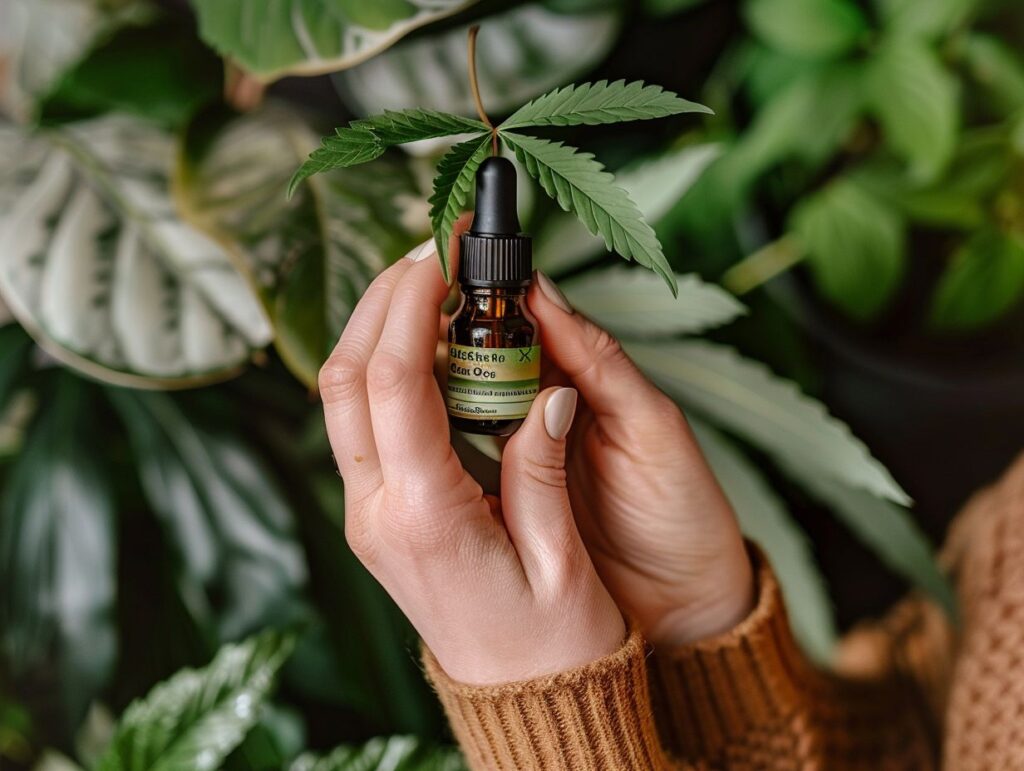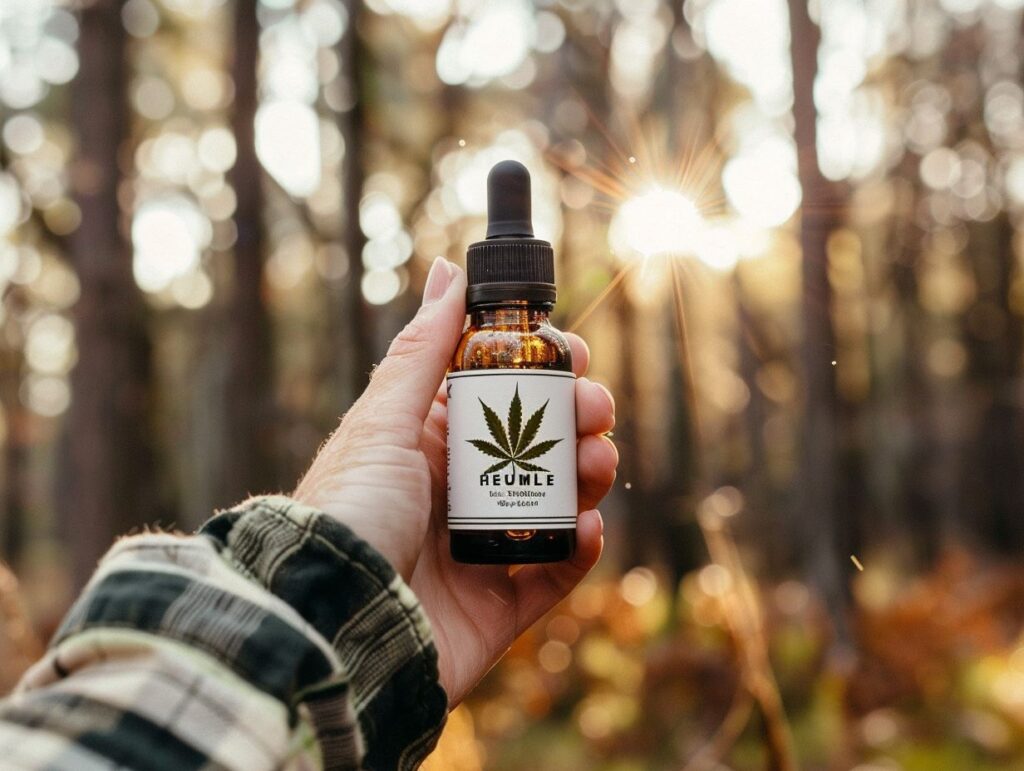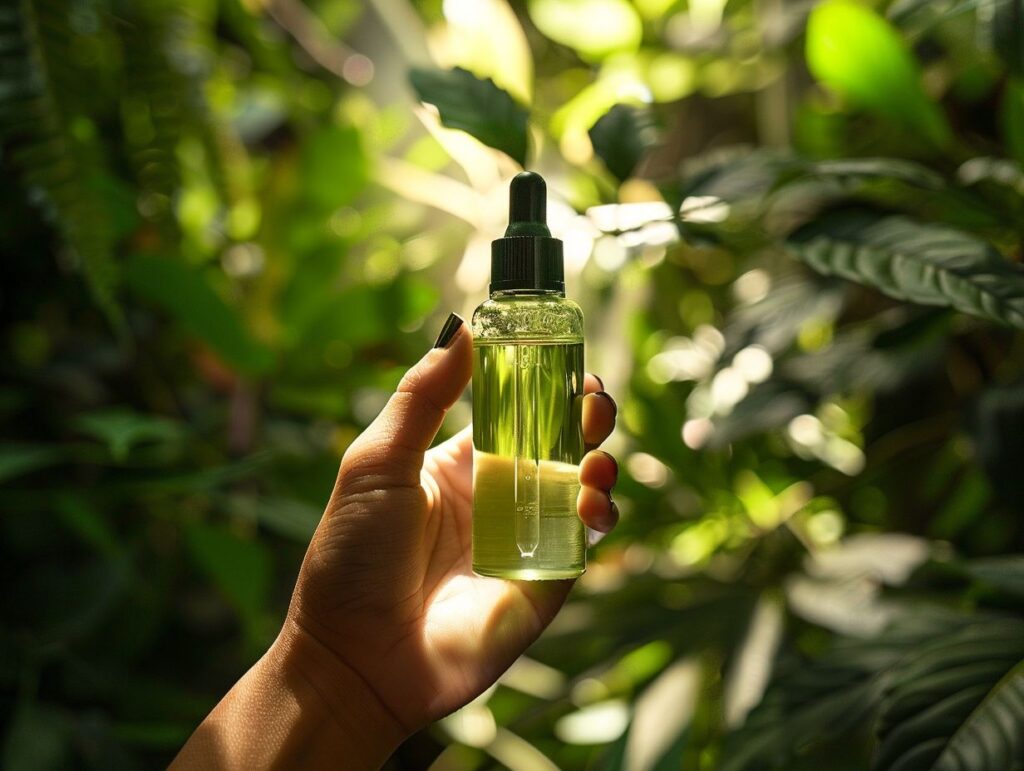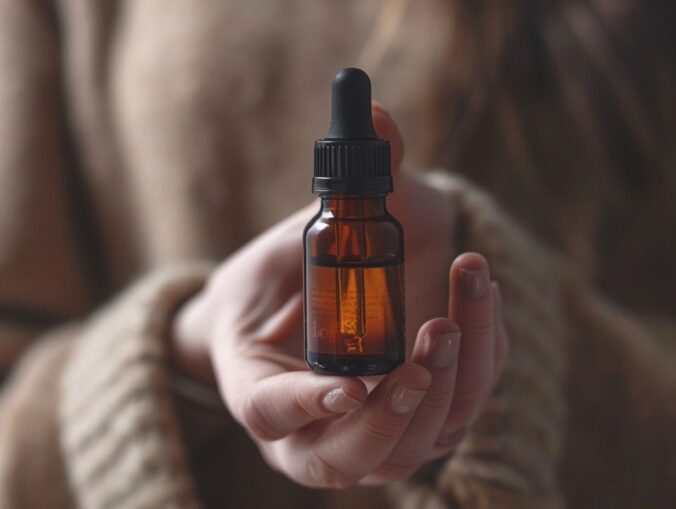Curious about CBD and the legal restrictions surrounding it? Wondering about age restrictions for purchasing and using CBD, especially when it comes to minors?
This article will explore the federal and state laws governing CBD, age restrictions for purchasing and using CBD, potential risks for minors, exceptions to age restrictions, and tips for parents to ensure safe use.
Let’s dive into the world of CBD and age regulations to help you navigate this complex landscape.
What Are The Legal Restrictions For CBD?
The legal restrictions surrounding CBD vary depending on federal and state laws, as well as local regulations. These laws dictate the production, distribution, and use of CBD products.
CBD products must comply with the requirements set forth by the 2018 Farm Bill at the federal level, which legalized industrial hemp and hemp-derived products containing less than 0.3% THC. States have the authority to enact their own regulations, resulting in a patchwork of laws governing CBD across the country. Local governments may impose further restrictions on the sale and marketing of CBD, creating a complex landscape for manufacturers and retailers to navigate.
Federal Law
Federal law regarding CBD is primarily governed by the Farm Bill of 2018, which legalized the cultivation of industrial hemp and the sale of hemp-derived products, including CBD, with certain restrictions and conditions.
The Farm Bill removed industrial hemp from the list of controlled substances, distinguishing it from marijuana and allowing for the legal production of hemp-derived CBD products. The FDA plays a crucial role in regulating CBD products, especially those intended for therapeutic or medicinal use. The FDA classifies CBD as a drug ingredient, and as such, products containing CBD must adhere to stringent regulations to ensure safety and efficacy. Despite federal legalization, individual states can impose additional restrictions or requirements on the sale and use of CBD products within their jurisdictions.
State Laws
State laws on CBD products can vary widely across different regions, with some states adopting more stringent regulations than others. It is crucial to be aware of the specific laws in the state where CBD is being bought or used.
While some states have fully legalized CBD for both medicinal and recreational purposes, others have imposed restrictions on its sale and use. For example, in some states, CBD products can only be sold in licensed dispensaries, while in others, they can be purchased over-the-counter. State laws also determine the permissible levels of THC in CBD products, with some states allowing higher concentrations than others. Understanding these variations is essential to avoid legal issues and ensure compliance with local regulations.
Age Restrictions
Age restrictions related to CBD consumption and purchase are essential components of the legal framework surrounding CBD products. Ensuring compliance with age regulations is crucial for both businesses and consumers.
Many jurisdictions have specific minimum age requirements for individuals to purchase or use CBD products. For example, in some areas, the legal age limit may be set at 18, while in others, it could be 21. These age restrictions are put in place to safeguard minors from potential risks associated with CBD consumption, ensuring that only adults who are deemed capable of making informed decisions can access these products. Violating these age-related regulations can lead to legal consequences for businesses and individuals alike.
What Are The Age Restrictions For Purchasing CBD?
The age restrictions for purchasing CBD products typically align with the legal drinking age in most states, which is 21 years. Some states may have different age requirements that govern the purchase of CBD.
For instance, in California and Colorado, individuals must also be at least 21 years old to buy CBD products legally. On the other hand, in states like Alabama and Georgia, the minimum age for purchasing CBD is 18. It’s crucial for consumers to be aware of and adhere to these age regulations to avoid any potential legal issues. By ensuring compliance with the specific age limitations set by each state, buyers can enjoy the benefits of CBD products without contravening local laws.
Federal Age Restrictions
At the federal level, the legal age for purchasing CBD products is typically set at 18 years. Some products with higher THC content may have a higher minimum age requirement.
Federal regulations aim to ensure that individuals under the age of 18 do not have access to CBD products. The distinction in age limits is primarily based on the THC levels present in the product, as higher THC concentration products are often subject to stricter age restrictions. This variation in age requirements reflects the concerns surrounding the psychoactive effects of THC, especially in younger individuals. It’s important for consumers to be aware of these age restrictions to comply with the law and promote responsible use of CBD products.
State Age Restrictions

States can set their own age restrictions for purchasing CBD products, with most aligning the minimum age with the legal drinking age of 21. It is essential to check the specific regulations in the state of purchase.
In some states, such as California and Colorado, the legal age to buy CBD products is 21, mirroring the drinking age. On the other hand, states like Oregon and Washington permit individuals as young as 18 to purchase CBD. Certain states have exceptions for medical CBD use, allowing minors with a doctor’s recommendation to access these products. Understanding the age requirements and any exceptions can help consumers navigate the varying regulations effectively and stay compliant with the law.
What Are The Age Restrictions For Using CBD?
The age restrictions for using CBD products are typically in line with the age requirements for purchasing CBD. It is crucial to adhere to these legal limitations to ensure safe and compliant use.
By following the specified age-related regulations, individuals can responsibly engage with CBD products while minimizing potential risks. Compliance with these guidelines not only promotes safety but also helps in maintaining the integrity of the industry.
Understanding and respecting age restrictions is a key aspect of promoting a culture of responsible consumption and ensuring that CBD products are used appropriately. These regulations are put in place to protect consumers, particularly younger individuals, from any adverse effects or misuse of CBD products.
Federal Age Restrictions
The federal age restrictions for using CBD products typically mirror the age requirements for purchasing CBD, ensuring consistency in age limitations across the supply chain.
This alignment is crucial for maintaining legal compliance and protecting consumers, as it helps regulate the access to CBD products in a responsible manner. By setting age restrictions that are in line with purchasing laws, the government aims to prevent underage individuals from accessing CBD, both for their safety and to uphold legal standards in the industry. Adhering to these regulations not only safeguards public health but also ensures that businesses operate within the boundaries of the law, promoting transparency and accountability in the CBD market.
State Age Restrictions
States may have specific age restrictions for the use of CBD products, with some aligning usage policies with purchasing age requirements while others may have distinct regulations based on consumption scenarios.
For instance, in some states, the legal age to buy CBD products may be 18, in line with tobacco and vaping laws, while in others, the age limit could be higher, such as 21, to parallel alcohol regulations.
Certain states might have separate guidelines for different types of CBD products, like edibles, oils, or topicals, each with its own age requirements. It’s crucial for consumers to be aware of and comply with these state-specific regulations to avoid any legal repercussions or misunderstandings when using CBD products.
What Are The Potential Risks For Minors Using CBD?
When minors use CBD products, there are potential risks involved, including adverse effects on brain development, possible interactions with medications, and concerns related to the lack of regulation and quality control in the CBD market.
The developing brains of minors are particularly vulnerable to the effects of substances like CBD, which can interfere with the natural neurological processes crucial for cognitive growth and emotional regulation.
There is a significant concern regarding the potential interactions between CBD and other medications commonly used by minors, such as certain seizure medications.
The lack of consistent regulatory oversight in the CBD industry raises fears about inaccurate labeling, contamination with harmful substances, and inconsistent product potency levels, posing serious health risks to young users.
Adverse Effects On Brain Development
Minors using CBD may experience adverse effects on brain development due to the impact of cannabinoids on neural pathways during critical growth stages.
The potential risks associated with CBD use in minors revolve around its interference with the endocannabinoid system, which plays a crucial role in regulating neural processes. Research suggests that exposing developing brains to cannabinoids can disrupt the delicate balance of neurotransmitters, affecting mood regulation, memory formation, and overall cognitive function.
These alterations could have long-lasting implications on a young individual’s brain development, potentially leading to learning disabilities, impaired memory retention, and emotional dysregulation. Therefore, it is essential for parents and healthcare providers to closely monitor and address any concerns regarding CBD use in minors to safeguard their neurological well-being.
Interaction With Other Medications
Minors using CBD need to be cautious of potential interactions with other medications, as cannabinoids can affect the metabolism of certain drugs, leading to adverse effects or reduced efficacy.
This is particularly crucial because the way CBD is metabolized in the body can interfere with the breakdown of other medications, altering their effectiveness or causing unexpected side effects. It’s essential for parents and healthcare providers to closely monitor minors using CBD in conjunction with other medications to ensure their safety and well-being. Medical supervision is key in managing these potential risks and ensuring that the therapeutic benefits of CBD are maximized without compromising the overall treatment plan.
Lack Of Regulation And Quality Control

The lack of strict regulation and quality control in the CBD industry poses risks to minors using CBD products, as inconsistencies in product quality, labeling, and content may lead to unintended health consequences.
Without proper oversight, there is a heightened potential for minors to be exposed to products that could contain harmful additives, inaccurate dosage information, or even undisclosed THC levels, which may have adverse effects on their developing bodies and minds.
The lack of standardized testing and quality assurance protocols raises concerns about the purity and safety of CBD products, making it essential for parents and caregivers to prioritize sourcing products from reputable and transparent manufacturers to ensure the well-being of minors.
Are There Any Exceptions To Age Restrictions For CBD?
While age restrictions for CBD are generally strict, there are exceptions that allow for legal use in certain scenarios. These exceptions often include medical use under supervision, parental consent, and specific regulations in certain states.
Medical use of CBD under supervision typically involves a doctor’s prescription and oversight to ensure the safety and efficacy of the treatment. In cases where minors require CBD for medical reasons, parental consent is crucial, and in some states, there are specific laws outlining how minors can access CBD products. These exemptions are designed to cater to individuals who genuinely benefit from CBD’s therapeutic properties while ensuring that proper guidance and regulations are followed to maintain safety and compliance.
Medical Use
Medical use serves as a significant exception to age restrictions for CBD, allowing minors access to CBD products under the supervision of healthcare professionals for specific conditions.
Healthcare professionals play a crucial role in assessing the appropriateness of CBD treatment for minors, ensuring that the benefits outweigh the risks. By closely monitoring the dosage and effects, doctors can tailor the therapy to suit each individual’s needs. The therapeutic benefits of CBD for children and adolescents with conditions such as epilepsy, anxiety, and chronic pain have been well-documented, highlighting its potential as a valuable treatment option. Legal compliance is essential in these cases to ensure that the use of CBD products for minors is in accordance with regulations and guidelines.
Parental Consent
Parental consent can override age restrictions for CBD use in some cases, allowing minors to use CBD products under the guidance and responsibility of their parents or legal guardians.
This exception is crucial as it acknowledges the role of parents in making health-related decisions for their children. Parental responsibility involves ensuring that the minor’s best interests are always prioritized when considering CBD usage. By requiring parental consent, authorities aim to uphold principles of informed decision-making, where parents are equipped with the necessary information to make choices regarding their child’s well-being. Incorporating legal compliance ensures that minors receive appropriate supervision and support when using CBD, fostering a safe and controlled environment for their health needs.
Legal Use In Certain States
Some states have specific laws that allow for legal use of CBD products by minors under unique circumstances, such as medical necessity or state-approved programs that permit CBD consumption under supervision.
By recognizing the potential therapeutic benefits of CBD for certain medical conditions in minors, state regulations aim to ensure that those who can benefit from the substance have access to it. These legal provisions often require medical oversight, with healthcare professionals monitoring the use of CBD to safeguard the well-being of underage individuals. Compliance with these frameworks is crucial in maintaining a balance between providing relief for minors with qualifying conditions and upholding regulatory standards to protect their safety.
How Can Parents Ensure Safe Use Of CBD For Minors?
Ensuring the safe use of CBD for minors requires parents to consult with pediatricians, purchase from reputable sources, and educate children on the proper use and risks associated with CBD products.
- When seeking advice from healthcare professionals, parents can gain valuable insights into the appropriate dosages and potential interactions that could arise with other medications their child might be taking.
- By sourcing CBD products from trusted manufacturers who provide clear labeling and third-party testing results, parents can ensure the quality and safety of what their child is consuming.
It’s crucial for parents to have open conversations with their children about the importance of using CBD responsibly and understanding the potential effects it may have on their health.
Consult With A Pediatrician
Consulting with a pediatrician is crucial to ensure the safe use of CBD for minors, as healthcare professionals can provide personalized guidance on dosages, potential interactions, and overall suitability of CBD products for children.
These professionals have the expertise to assess a child’s specific medical history, current medications, and any underlying conditions that could impact the use of CBD. By consulting with a pediatrician, parents can receive tailored recommendations tailored to their child’s needs, minimizing potential risks and ensuring that CBD is used in a safe and effective manner. Pediatricians can monitor the child’s response to CBD over time and make necessary adjustments to dosage or formulation for optimal health outcomes.
Purchase From Reputable Sources

Buying CBD products from reputable sources is essential for parents ensuring the safety of minors, as reputable retailers offer quality-assured products that comply with legal standards and provide transparent information.
When parents opt for CBD products from trusted sources, they can have peace of mind knowing that the items have undergone rigorous quality control measures to ensure purity and safety. These reputable retailers prioritize legal compliance, ensuring that the products meet all regulatory requirements for minors’ consumption. Transparency is also a key aspect, as reliable sources provide detailed information about the ingredients, production processes, and third-party lab testing results, allowing parents to make informed decisions for their children’s well-being.
Educate Children On Proper Use And Risks
Educating children on the proper use and potential risks of CBD is paramount for parents, as informed awareness enables minors to make responsible choices and understand the implications of CBD consumption.
By providing age-appropriate information about CBD, parents can empower their children to navigate the complexities of these products. Open communication channels enhance trust between parents and minors, fostering an environment where questions are welcomed and concerns are addressed. Teaching minors about the importance of sourcing CBD from reputable sources and adhering to recommended dosages is crucial in promoting safe consumption practices. Encouraging responsible decision-making early on sets a foundation for a lifetime of mindful choices regarding health and wellness.
Frequently Asked Questions
Are there any age restrictions for purchasing or using CBD?
No, there are currently no federal age restrictions for purchasing or using CBD products. However, some states may have their own age restrictions in place. It is important to check your state’s laws before purchasing or using CBD products.
Can minors purchase or use CBD products?
It is not recommended for minors to use CBD products without consulting a doctor first. While there are no federal age restrictions, some states have implemented their own regulations regarding minors and CBD. Parents should always do their research and consult with a healthcare professional before allowing their child to use CBD.
Is it safe for children and teenagers to use CBD?
CBD has not been extensively studied in children and teenagers, so its safety for this age group is not fully known. It is always best to consult with a doctor before giving CBD products to children or teenagers, especially if they are taking any medications or have any underlying health conditions.
Do I need to show ID when purchasing CBD products?
Most reputable CBD retailers will require customers to show a valid form of identification at the time of purchase, regardless of age. This is to ensure that the customer is of legal age and to prevent any potential issues with underage consumption.
Are there any age restrictions for purchasing CBD online?
Again, there are currently no federal age restrictions for purchasing CBD products online. However, some online retailers may choose to implement their own age restrictions and require customers to verify their age before completing a purchase.
Can I give CBD products to my pets?
While CBD has become popular as a supplement for pets, it is important to consult with a veterinarian before giving any CBD products to your furry friends. The appropriate dosage and potential interactions with other medications should be discussed with a professional beforehand.

